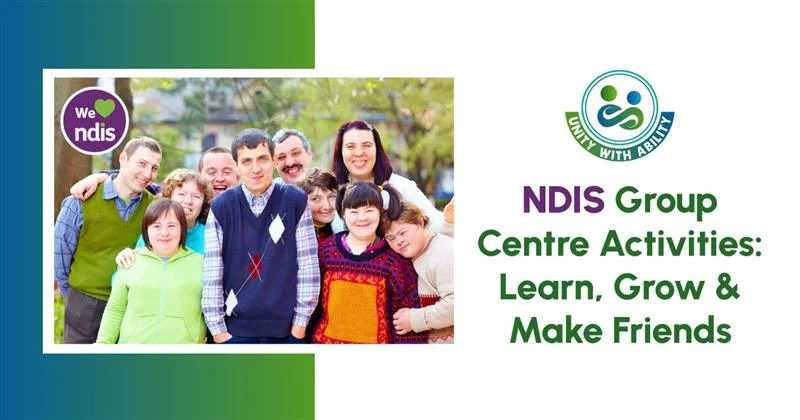Holidays are a great way to relax, recharge, and spend time with family and friends. For people using the National Disability Insurance Scheme (NDIS), planning a holiday may need extra thought and preparation. But with the right NDIS holidays planning, you can enjoy a holiday that suits your needs.
In this blog, we will explain how to plan a holiday with NDIS so you can make the most of your time away.
1. Know Your NDIS Supports
Before you start planning, it’s important to know what help you can get from your NDIS plan. NDIS funding can cover many services during your holiday, including:
Help with daily activities: You can get assistance with tasks like personal care or mobility support if needed.
Transport costs: If you need help getting to your holiday, you may be able to use NDIS funding for transport.
Accommodation: If you need accessible accommodation, NDIS can help with costs. You can talk to your support coordinator to find the right place.
Respite care: If you need a break from your regular care, respite care services can be funded by NDIS so you can relax while your care needs are taken care of.
2. Plan Early with Your Support Coordinator
Planning a holiday can take time, especially if you need special help. It’s a good idea to start early. A support coordinator can help you understand what services and funding you can use to make your trip easier.
Your support coordinator can help with:
Booking accommodation that fits your needs
Finding transport options and helping with travel plans
Arranging extra support during your holiday, like a support worker to help with daily tasks or personal care
Make sure all your details are ready before the trip, so everything goes well. Good NDIS holidays planning involves working with your support coordinator.
3. Choose an Accessible Destination
When you plan your holiday, pick a place that is easy to get around and suits your needs. Many places in Australia and abroad are designed with accessibility in mind, making it easier for people with disabilities to enjoy their time away.
Here are some tips for choosing an accessible destination:
Check accessibility: Look for places that offer accessible transport, wheelchair-friendly accommodation, and attractions that are easy to visit.
Think about your support needs: Consider if you will need extra help, such as personal care or mobility support, and if the place can provide that.
Talk to your support coordinator: They can help you find destinations that are both fun and accessible for you.
Choosing the right destination is important in your NDIS holidays planning.
4. Book Accessible Accommodation
Accessible accommodation is important for a smooth holiday. Look for places that meet your needs, such as:
- Wheelchair access
- Grab rails in bathrooms
- Larger doors and hallways for easy movement
- Help with personal care if needed
- Many hotels and rental properties offer accessible options, so make sure to check reviews and confirm the facilities ahead of time.
If you need extra help, you can also arrange a support worker to stay with you during your trip. Be sure to discuss this with your support coordinator as part of your NDIS holidays planning.
5. Think About Transportation Needs
Transportation is important for any holiday, especially if you have special needs. You want to make sure traveling to and from your holiday is safe and comfortable.
Flights: If you’re flying, contact your airline early to make sure they can help with your needs, such as wheelchair assistance or special seating.
Public transport: Many cities offer accessible public transport. Check what’s available in your destination.
Car hire: If you need a car, look for one that is adapted for your needs, such as one with wheelchair access.
If you need extra help getting around, you can use your NDIS funding for transport support, including taxis or accessible transport.
Transportation is a key part of NDIS holidays planning, so make sure you arrange it ahead of time.
6. Pack for Your Needs
Packing for a holiday isn’t just about clothes and toiletries. You need to pack everything that helps you manage your health and mobility. Here’s a checklist:
Medications and medical equipment: Make sure you have enough for the trip, along with any equipment you might need.
Assistive devices: If you use a wheelchair, walker, or hearing aids, pack them and spare parts or batteries.
NDIS paperwork: Bring your NDIS-related paperwork in case you need it during your trip.
Also, keep emergency contact details handy, including your support coordinator’s number and any local emergency services. Being prepared is a big part of NDIS holidays planning.
7. Enjoy Your Holiday!
With the right planning, you can enjoy a relaxing and fun holiday with NDIS support. Take time to rest, explore new places, and have fun with family and friends. Remember that your NDIS plan can help you get the support you need, so don’t hesitate to ask for help during your trip.
Enjoying your holiday is the main goal of NDIS holidays planning. Take time to relax, explore, and enjoy your time away.
Conclusion
Holidays are a great way to recharge and experience new things. With the help of NDIS, your holiday can be even more enjoyable. By planning early, choosing accessible destinations, and using your NDIS funding, you can have a holiday that works for you.
If you need help planning your next holiday with NDIS, talk to your support coordinator to make sure everything goes smoothly. Happy holidays!




